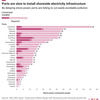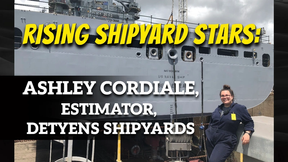Case on EU Ship Source Pollution Directive to be Heard
Members will recall that the case brought against the U.K.'s Secretary of State for Transport had originated in the Administrative Court of the English High Court. Judgment was granted in favour of the industry coalition in July 2006. The High Court had directed that the case be transferred to the ECJ as that Court has the sole power to rule on the validity of a piece of EU legislation. The Directive, which seeks to criminalise accidental pollution, has proved to be controversial from both the legal and practical standpoints.
The case has been assigned to be heard by thirteen judges of the ECJ, the maximum possible number, plus the Advocate General assigned to the case. This is termed the Grand Chamber of the Court. Approximately three quarters of all the cases brought before the Court are heard by a Chamber of three judges. Thus it is clear that the Court views the case as one of great importance.
Representing the industry coalition - INTERTANKO, INTERCARGO, the Greek Shipping Cooperation Committee, Lloyd's Register and the International Salvage Union - are Professor Christopher Greenwood QC CMG and Hugh Mercer of counsel, instructed by Colin de la Rue of Ince & Co.
EU Member States that support the coalition's case are Cyprus, Greece and Malta. Member States that oppose it include the U.K., France, Spain, and Italy. In addition the EU institutions support the validity of the Directive. The case will examine very carefully the relationship between the Directive and Member States' existing treaty law obligations under MARPOL and UNCLOS.
(Source: Intertanko)












